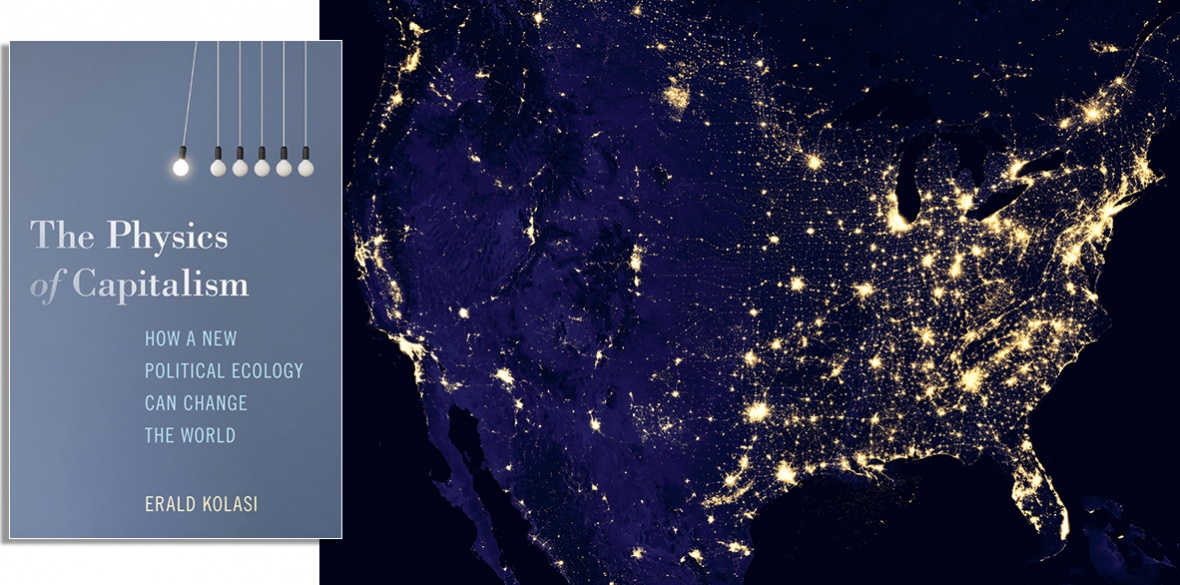This is the last article you can read this month
You can read more article this month
You can read more articles this month
Sorry your limit is up for this month
Reset on:
Please help support the Morning Star by subscribing here
The Physics of Capitalism: How a New Political Ecology Can Change the World
by Erald Kolasi
Monthly Review Press £27.99
READERS who struggle with the maths and abstractions inherent in the physics of the 20th and 21st centuries — Einstein, Niels Bohr and all that flowed from their work — should not be deterred by the title of this book.
Erald Kolasi draws only on classical physics to show how energy flows determine the fate of complex systems, including economic systems and life itself. It also equips him to provide a devastating critique of neoclassical economics and enables him to give us a vision of a sustainable global future — all without resorting to a single equation!
Erald Kolasi’s critique of neoclassical economics — the kind instilled into our ruling class and the only kind taught in our universities — turns on its dependence on a subjective concept of value, a dependence that results in circularity. The concepts it employs for utility and marginality are also shown to be deeply flawed.
Other hallowed concepts that are demolished by the author include the employment of Gross Domestic Product (GDP) as a metric; growth in GDP as an economic objective; and Net Present Value, under which future costs are discounted at rates that include the capitalists’ lost profit. This is shown to be especially inappropriate when considering the steps needed to address global warming.
The book contains a penetrating study of productivity and economic growth. These are both questions which neoclassical economics fails to explain or even adequately define. There is also an interesting chapter on the history of the industrialisation of Britain and, elsewhere, an explanation for why the Industrial Revolution didn’t begin some centuries earlier in China.
The author shows a full awareness of, and familiarity with Marxist thought, quoting at length from the opening to the Communist Manifesto.
Turning to the future, Erald Kolasi calls, somewhat idealistically in my view, for a new international order that is both inclusive and pluralistic. He offers few suggestions on how this can be achieved or what we can do to bring it about. The central goal, he argues, should be the protection of a stable way of life in the face of chaotic natural instabilities. The term he coins for this ecological perspective is “Valerism.” It is, he argues, compatible with “certain forms of socialism” without identifying to which forms he is referring.
On specifics, he does recommend an upper limit for average energy consumption of 60,000 kilocalories per head of population. The global average in 2021 was 50,000 kilocalories per head, although in the USA it was 190,000 kilocalories per head. One is left to speculate on how this can be brought about.
Perhaps it’s simply now down to us on the left to take up Erald Kolasi’s ideas and run with them. I recommend this book for anyone interested in political economy and environmentalism. I also recommend it for anyone studying economics at university – provided they don’t tell their lecturers.







